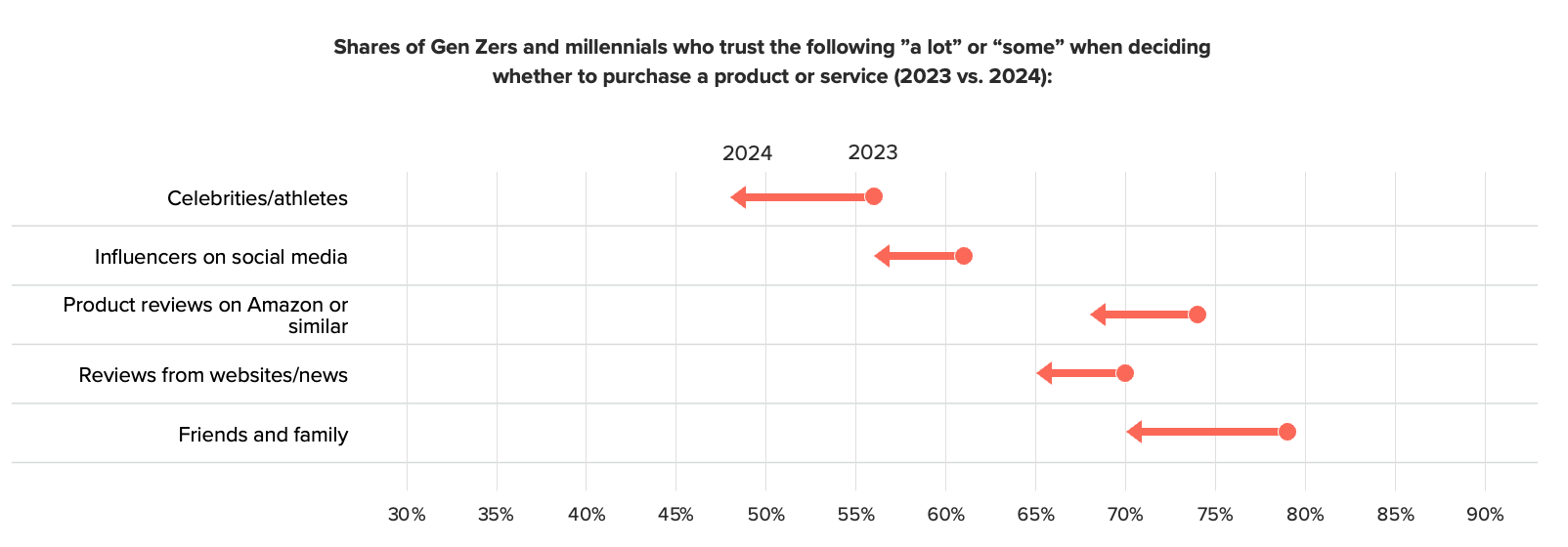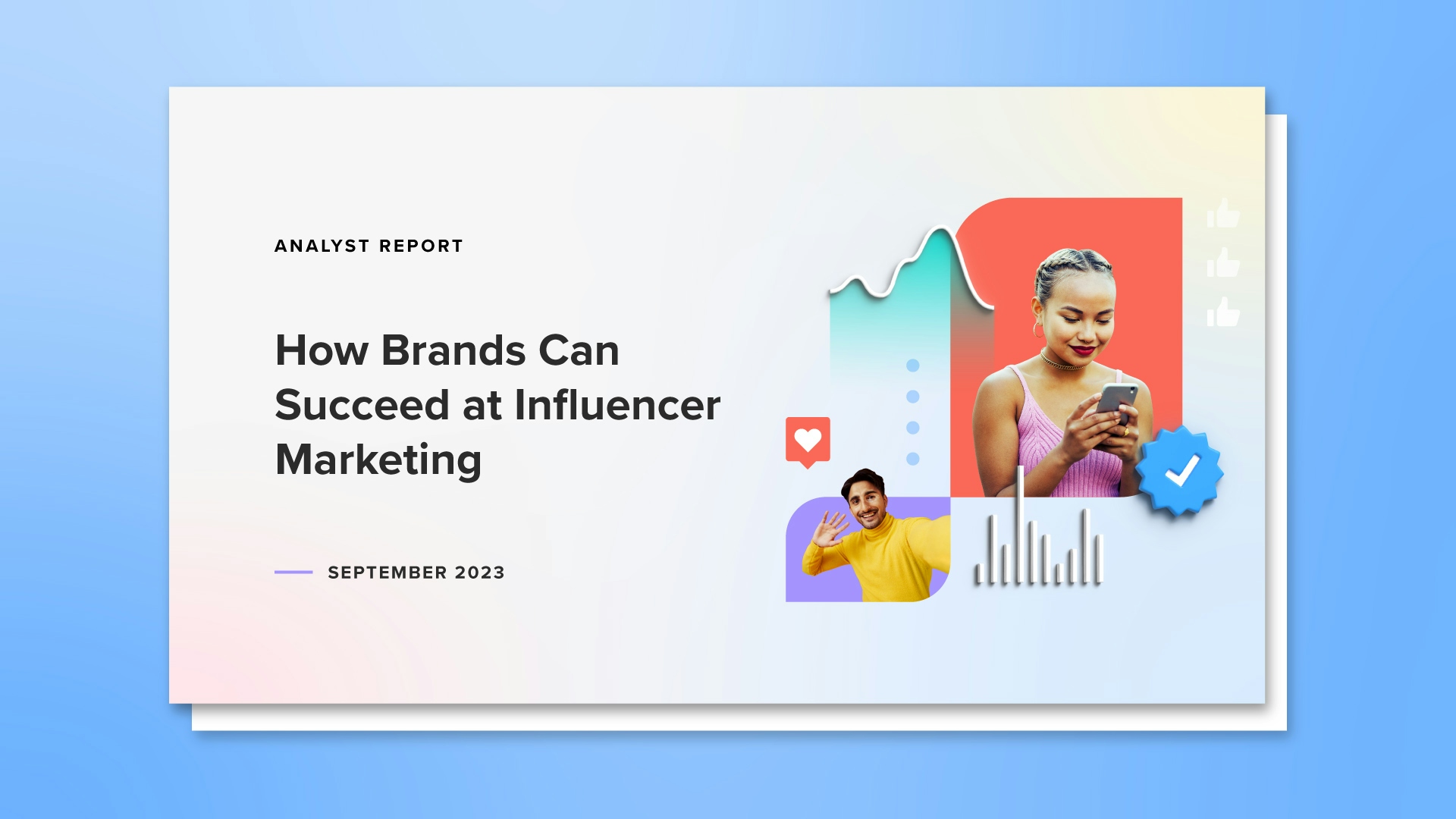
Brands
The 2025 Influencer Marketing Guide
Report summary
Influencers are a powerful cultural force, though trust in them is waning.
In 2024, anyone with a social media account can be an influencer. Yet that widespread access may also be contributing to a decline in trust.
But it’s surely not the only factor. For one, the rising adoption of generative AI, especially when used to create images, enables deception. For two, we conducted this survey about one month ahead of a very divisive presidential election. Still, influencers and content creators hold a powerful place in the imaginations of young adults and can be strong partners for brands. This report offers insight into how influencers fit into U.S. adults’ social media consumption and purchasing decisions, and where future influencers want to take the industry.
This report draws on surveys of 2,205 U.S. adults and 1,002 Gen Zers ages 13-27 who use social media, including 1,117 U.S adults and 832 Gen Zers who follow social media influencers. We asked respondents whether they trust influencers, how influencers impact their purchasing behaviors and who their favorite influencers are.
Key Takeaways
- Trust in influencers is declining: The share of social media users who trust influencers dropped 5 percentage points since last year.
- Anybody can be an influencer: To be an influencer, social media users say one simply has to make entertaining content and share ideas or inspiration — and find virality.
- Influencers’ recommendations are still powerful: Nearly half (45%) of social media users report that they “often” or “sometimes” make purchases after seeing someone post about it on social media.
- There’s no singular all-powerful influencer: Celebrities and mega-influencers capture the imagination of many, but there was no consensus to be found when we asked followers to name their favorite influencers.
Data Downloads
Pro+ subscribers are able to download the datasets that underpin Morning Consult Pro's reports and analysis. Contact us to get access.
Highlights from this report
While influencers have never been young consumers’ most trusted cohort — that honor consistently goes to friends and family — trust in them declined 5 percentage points between 2023 and 2024. It’s a notable reversal after a period of sustained growth, but marketers shouldn’t panic.
A majority (56%) of Gen Zers and millennials still say they trust influencers when deciding whether to purchase products, and that share that is still much higher than the share of average social media users who say the same (41%).
Ultimately, influencers are still very important cultural arbiters for Gen Zers and millennials, even if trust levels ebb and flow in the short-term.
Younger consumers are losing trust in influencers — and many other cohorts

Download this report
Methodology
The research fueling this report was fielded September 26-October 2, 2024, among a representative sample of 2,205 U.S. adults who use Twitter, Facebook, Snapchat, Instagram, TikTok, Twitch, or YouTube, including 1,117 who follow influencers, with an unweighted margin of error of +/- 2 percentage points. An additional survey was fielded October 3-8, 2024, among 1,002 Gen Zers ages 13-27 who use Twitter, Facebook, Snapchat, Instagram, TikTok, Twitch, or YouTube, including 832 who follow influencers, with an unweighted margin of error of +/-3 percentage points.
Prior year data was drawn from two surveys conducted June 21-25, 2023 and June 21-July 6, 2023 among the same audiences.
About the authors
Ellyn Briggs is a brands analyst on the Industry Intelligence team, where she conducts research, authors analyst notes and advises brand and marketing leaders on how to apply insights to make better business decisions. Prior to joining Morning Consult, Ellyn worked as a market researcher and brand strategist in both agency and in-house settings. She graduated from American University with a bachelor’s degree in finance. For speaking opportunities and booking requests, please email [email protected].



